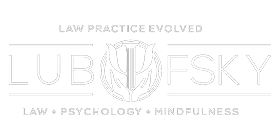At its core, mindfulness refers to a felt sense of present-moment experience. This felt sense fundamentally differs from time caught in thought-driven judgements, interpretations, stories, fears, expectations, etc. These latter mental formations though “real” are far more than often not “true” and often serve to disconnect one from present-moment experience – the only experience within which true happiness and inner peace can ever be realized. Sustained or predominant conditions of disconnect cannot only lead to a persistent sense of life dissatisfaction, but may serve as a precursor to significant life difficulties including physical ailments, relationship problems, and substance abuse.
In recent years, American culture has been so inundated with “mindfulness” concepts, strategies and services that its meaning has become diluted and almost synonymous with calm or relaxation. Through anxiety reduction is a common byproduct of “mindfulness,” it should be looked upon as just that – a byproduct – not a primary goal of mindfulness training.
By helping practitioners view and appreciate the mind with significantly improved clarity, he or she comes to realize far less reactivity to life situations and a new freedom of choice to select from among a range of responses to any given situation. This renewed response-ability can lead to far more creative and flexible solutions to life’s inevitable challenges both within the personal and professional realms. More than 2,500 years ago, Siddartha Gautama (later referred to as “Buddha”), termed this optimal end result as “the end of suffering” or “enlightenment.”
But the prescription for “the end of suffering” laid out by Buddha is more involved than just taking a deep breath. He laid out an eight-fold path that, through practice, can greatly facilitate one’s ability to remain connected to present-moment experience and optimize inner peace. Additionally, sustained connection to present-moment experience or we can say “life,” over time, instilling a heightened sense of connection to all of life, and all beings in ways that produce empathy and compassion. When one’s decisions and actions spring from this empathy and compassion, solutions are conceived and actions are taken that are truly in the best interest of all of life, not narrow self-interests that usually are unsustainable on either micro or macro levels.
Thus “mindfulness” significantly transcends mere stress reduction. It holds the key to a world in which human beings act with a felt sense of connection to all of life. From this launching point comes the possibility of eradicating the most destructive problems facing individuals and society as a whole, while at the same time providing happiness and inner peace to individuals. This transformative potential is why mindfulness has begun to seep into our culture, and is what I strive to introduce and cultivate in the lives of all those with whom I work.
